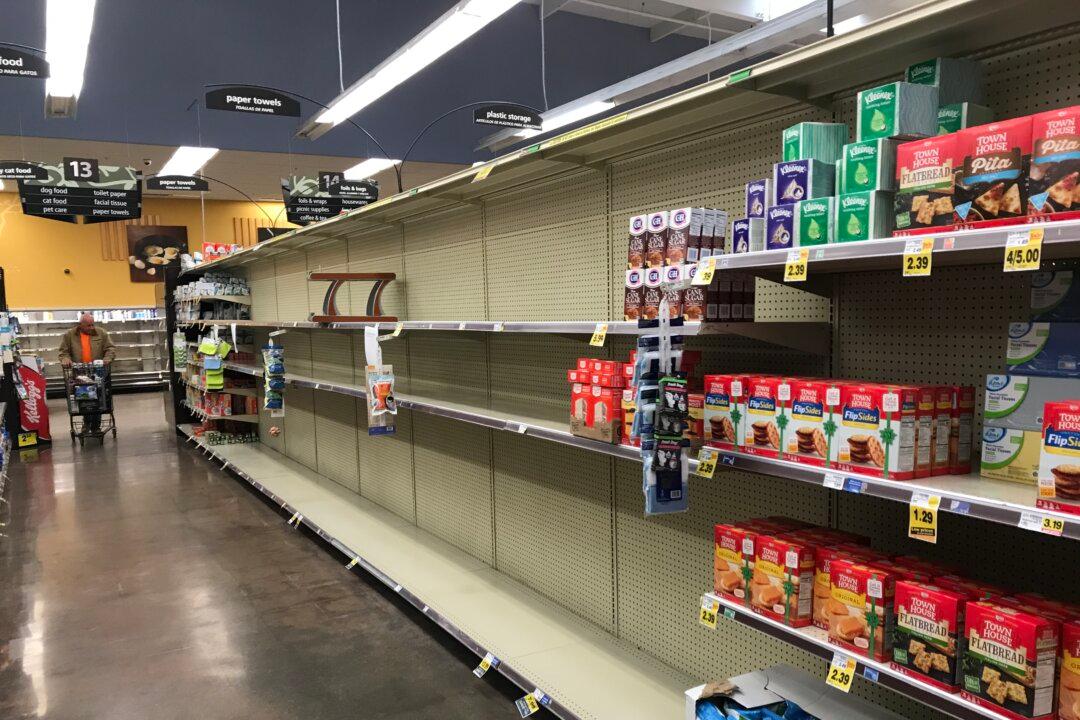MENIFEE, Calif.—Because of concern about the spread of the CCP virus, shoppers have stripped grocery store shelves of basic food staples and disinfectant as California food retailers struggle to keep pace with the sudden, sharp spike in demand.
The Epoch Times refers to the novel coronavirus, which causes the disease COVID-19, as the CCP virus because the Chinese Communist Party’s coverup and mishandling allowed the virus to spread throughout China and create a global pandemic.





